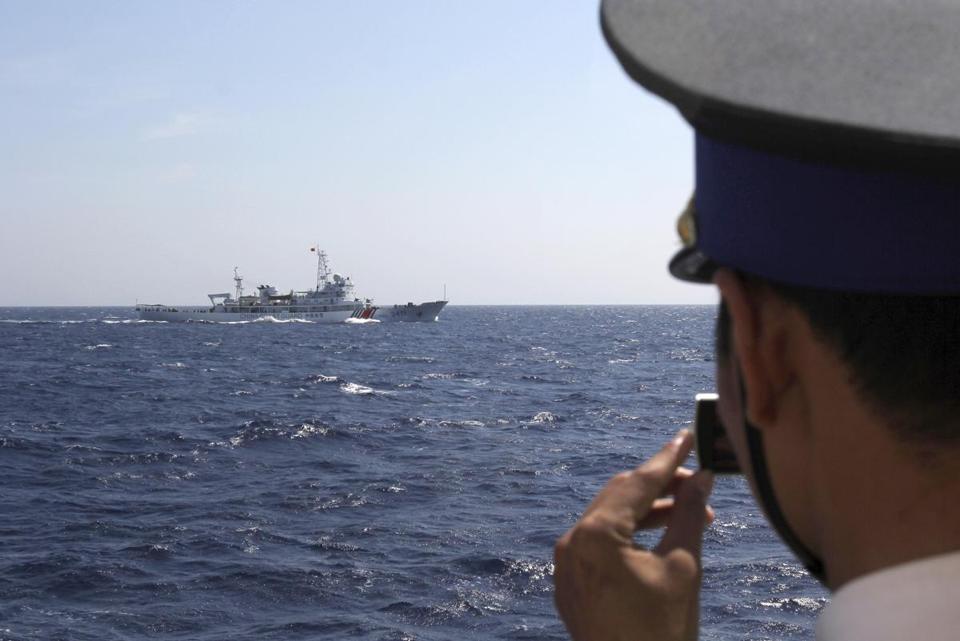(Photo Credit: AFP/Getty Images)
(BGF) – Recently The Boston Globe published an article discussing Vietnam’s history of conflict with, and resistance against, China. In light of Vietnam’s long history of resisting Chinese actions, H.D.S. Greenway argues that, although Vietnam does not compare to China’s military power, it should come as no surprise that Vietnam will prove to be a difficult neighbor for China to push around. Click here to read the full article or visit The Boston Globe‘s website.
Vietnam Won’t Be Pushed Around By China
By H.D.S Greenway
VIETNAM MAY prove harder to push around than some of China’s other maritime neighbors in contested waters. Vietnamese and Chinese ships recently rammed each other and fired water cannons to contest China’s bringing in a giant oil rig off the barren sandspits called the Paracel Archipelago that both claim in the South China Sea. It was not the first such confrontation.
Forty years ago, when there was still a South Vietnam, I watched South Vietnamese war ships holed by gunfire limp home into the port of Danang. They had not been fighting their mortal enemy, North Vietnam. They had clashed with Chinese forces off those same disputed Paracel islands that lie about equidistant from the Chinese and Vietnamese coasts. China made a big fuss over the confrontation at the time, saying its forces had protected the motherland. South Vietnam scored a propaganda victory over Hanoi by calling upon all Vietnamese, of whatever political persuasion, to denounce the Chinese occupation of sacred Vietnamese soil.
The following year, as North Vietnamese forces were closing in on Saigon and South Vietnam was in its death throes, the North Vietnamese attacked and displaced a small South Vietnamese garrison on the Spratly Islands further south which were, and are today, also claimed by China as well as Vietnam, the Philippines, and even tiny Brunei. The significance was that, even though the war between the two Vietnams was still raging, Hanoi made the decision to steal a march on China, its vital ally, just to make sure that, once the war was over, a Vietnamese garrison remained on the remote islands Vietnam claimed.
In 1979 China actually attacked Vietnam along its northern border, not over islands in the South China Sea, but in order to punish Vietnam for its invasion of Cambodia in order to oust the loathsome Khmer Rouge regime, a China ally. In that encounter the Chinese army received a bloody nose from the more battle-hardened Vietnamese.
Many of Vietnam’s traditional heroes, such as the Trung sisters in the first century AD and Le Loi in the 15th century, gained their place in history for anti-Chinese resistance. China occupied Vietnam for nearly 1,000 years from the first century BC until the 10th century AD. There were other periodic Chinese invasions during the Ming Dynasty.
After World War II the Chinese were back again when Chiang Kai-shek’s troops were tasked with disarming the Japanese in the north. When Ho Chi Minh was criticized by Vietnamese nationalists for agreeing to have the French return to their old colony to replace Chinese troops, Ho told them that European colonialism was dying. He said he would rather smell French excrement for a few years more than Chinese excrement for another millennium.
Click here to continue reading.
